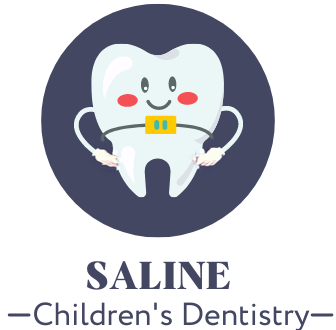Preventive Care
Topics on this page
Regular Exams and Cleanings
Regular exams are an essential part of maintaining your child’s oral health. The American Academy of Pediatrics (AAP), the American Dental Association (ADA), and the American Academy of Pediatric Dentistry (AAPD) recommend establishing a “dental home” for your child by their first birthday. Those regular exams allow us to assess their oral health regularly and provide appropriate preventive and routine care. Coupled with brushing and flossing at home, visiting the dentist for a comprehensive exam and cleaning is essential. The American Dental Association recommends that your child visit the dentist every six months to ensure a healthy smile. During your child’s exam, we will:
- Perform a thorough teeth cleaning, polish, and rinse the teeth to remove any tartar and plaque that have built up on the tooth’s surface.
- Examine your child’s teeth and gums for signs of tooth decay, gum disease, and other health problems.
- Take X-rays to identify any dental issues not visible to the naked eye.
Visiting our office every six months allows you to talk to the doctor about any questions about your child’s oral health.
Fluoride
Fluoride prevents cavities and plaque from building up and hardening on the tooth’s surface. A fluoride treatment in a dentist’s office takes just a few minutes. After the treatment, your child may be asked not to rinse, eat, or drink for at least 30 minutes to allow the teeth to absorb the fluoride.
Sealants
What are Dental Sealants? Sometimes brushing is not enough, especially for those hard-to-reach spots in your child’s mouth. It is difficult for a toothbrush to get between the small cracks and grooves on your child’s teeth. If left alone, those tiny areas can develop tooth decay. Sealants give your child’s teeth extra protection against decay and help prevent cavities and staining.
Sealants are plastic resin painted on the teeth’ chewing surfaces. When a tooth surface is sealed, the tiny grooves become smooth and are less likely to harbor plaque. With sealants, brushing your child’s teeth becomes more effective and efficient against tooth decay.
Sealants are applied to children’s teeth as a preventive measure against decay after permanent teeth erupt. Sealing “permanent” teeth rather than “baby” teeth is more common, but every patient has unique needs, and your child’s dentist will recommend sealants on a case-by-case basis.
Though dental sealants protect molars, parents, and children must understand that these sealants are not a substitute for regular and thorough brushing and flossing. Sealants are a preventive measure designed to be just part of an overall approach to oral health, including excellent oral hygiene habits at home.
Silver Diamine Fluoride
Silver Diamine Fluoride (SDF) is a simple and noninvasive way to prevent the spread of cavities. We recommend using SDF in certain situations, such as when young children might have difficulty sitting still for treatment. SDF will be applied to any decayed areas of the teeth.
It is important to note that any decayed areas will stain black. Any healthy tooth structure will not stain as the medication only affects areas of decay.
Advantages of Silver Diamine Fluoride include:
- Immediate relief from tooth hypersensitivity
- The killing of organisms that cause cavities
- Hardening of softened tooth structure makes the tooth more resistant to acids and abrasions.
Disadvantages of Silver Diamine Fluoride include:
- The areas treated with SDF will turn black, which can be an esthetic issue, especially for front teeth. It is important to note that the dark staining is still very apparent even after a white filling is placed on the cavity.
- SDF is often not a definitive treatment, so further treatment of the affected tooth is usually required.
SDF is often not very effective for treating large cavities near the nerve or between the teeth.
Mouth Guards
Mouth guards are an essential piece of athletic equipment that can help protect children’s teeth.
Our office offers custom-made mouthguards that are correctly fitted, which makes them more comfortable to wear.
We recommend children wear a mouth guard for any sport that could result in trauma to the mouth or face.
Nightguards
There is an easy, noninvasive treatment for bruxism: nightguards. Nightguards are an easy way to prevent the wear and damage that teeth-grinding causes over time. Custom-made by a dentist from soft material to fit the teeth, a nightguard is inserted over your child’s top or bottom arch, preventing contact with the opposing teeth.
